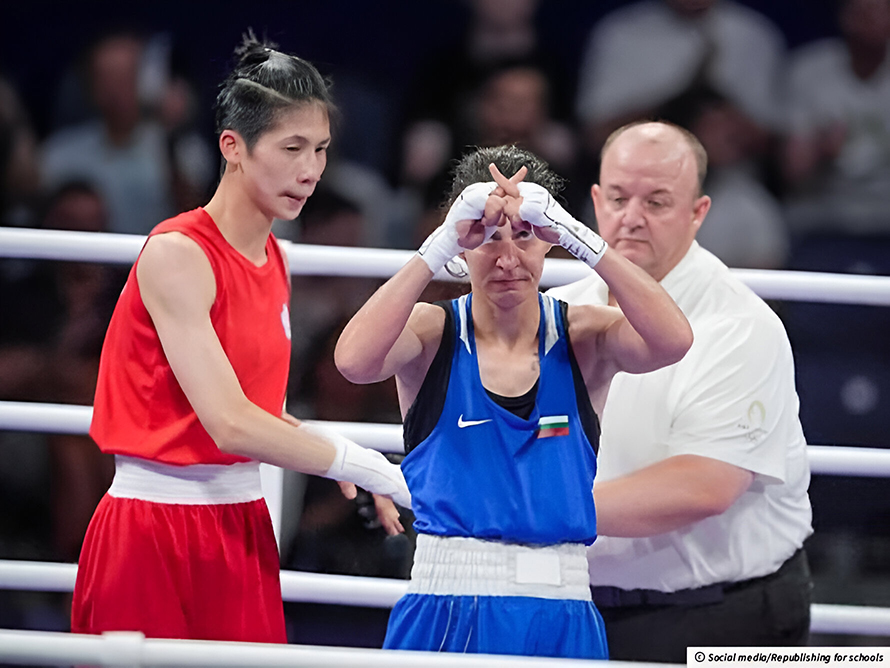Is this a case of cheating? Two boxers have been accused of unfairly competing in the women’s category, causing a heated but confused online debate.
Olympic boxing sparks gender fracas
 Fight: The Olympic committee says Imane Khelif (above in red) and Lin Yu-Ting were "born women and raised women", but the IBA says male XY chromosomes were found in both.
Fight: The Olympic committee says Imane Khelif (above in red) and Lin Yu-Ting were "born women and raised women", but the IBA says male XY chromosomes were found in both. Glossary
Chromosomes - A threadlike structure found in the nucleus of most living cells, carry genetic information in the form of genes.
NHS - The National Health Service, the publicly funded healthcare system in the UK. The NHS was founded in 1948.
Testosterone - The hormone that causes people to develop male sexual characteristics. Women also produce some testosterone.
Physiology - The study of how the human body works.
Welterweight - A weight category in boxing between lightweight and middleweight.
